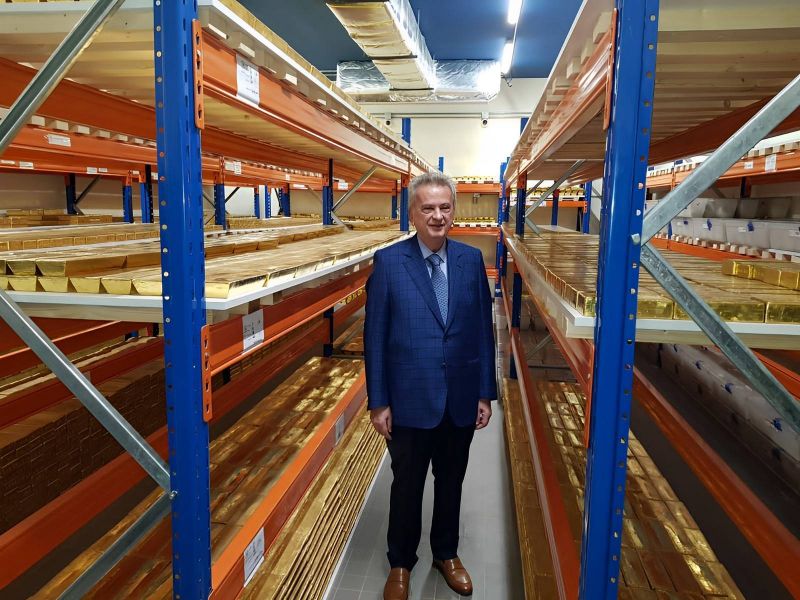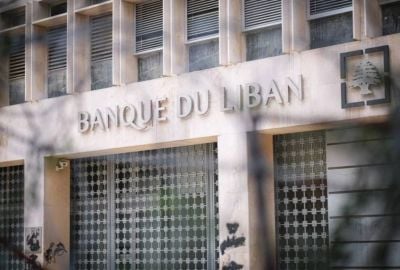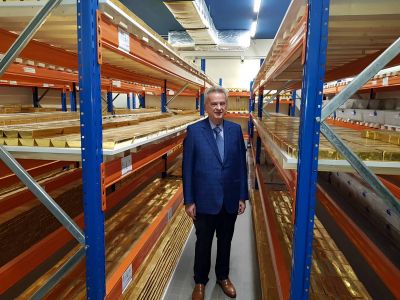
Former BDL Governor Riad Salameh last November, posing for a photo with the central bank's gold ingots. (Credit: DR)
BEIRUT — Interim Banque du Liban (BDL) governor Wassim Mansouri announced Thursday the release of an audit of the country's gold reserves, carried out by ALS Inspection UK.
This audit confirms official statements previously made by BDL, which account for a total of "more than 13,000 ingots and 600,000 coins." Mansouri's communication on the subject stands in contrast with the approach of Riad Salameh, who was in office from 1993 until last July. Salameh's monetary policy, which has initiated the collapse of the local currency and a depletion of foreign exchange liquidity in the banking sector, is considered a prime cause of the economic crisis by some.
‘Complex’ and ‘fascinating’
Wassim Mansouri attached to his statement the mentioned summary signed by ALS Inspection's representative, David Pownall, whose mission was to "verify the existence and quality of the gold reserves stored in the BDL's vaults," which seems to exclude the 40.2% stored in the United States. The total gold reserves amount to 286 tons, equivalent to $9.22 million troy ounces (1 troy ounce = 31.1 grams).
The summary of the audit was written in English and translated into Arabic and states that the country's gold reserves were worth about $18 billion by the end of July.
The audit was conducted by ALS Inspection, on behalf of KPMG, who was appointed by Lebanese authorities in 2020 to execute the accounting aspect of BDL's audit, alongside Oliver Wyman (specialist in central bank standards) and Alvarez & Marsal (responsible for the forensic audit).
The International Monetary Fund, with whom Lebanon signed a preliminary agreement in April 2022 for a potential financial assistance program, had requested a proper audit of the BDL's foreign assets (reserves and holdings in foreign exchange and gold).
Last November, Salameh announced that the audit of the gold reserves had been successfully conducted, without providing further details on the matter. He attached a photograph of himself, taken in what is presumed to be the interior of the BDL's vaults, along with his statement.
According to Pownall, the objective was to "independently inspect" the gold reserves and "digitally verify and record" their contents, which are "composed of ingots and coins."
This was done to create a "digitized catalog of [the] inventory, that is transparent and can be easily and effectively audited in the years to come." Describing the operation as "complex" and "fascinating," Pownall concluded his summary by stating that ALS had sealed the BDL's vaults after the audit, and will return "every year" for a new assessment.
The BDL's accounts show a massive deficit that its remaining foreign exchange reserves - nearly $8.6 billion, of which $7.3 billion are available, in addition to the $18 billion in gold - do not compensate for.

